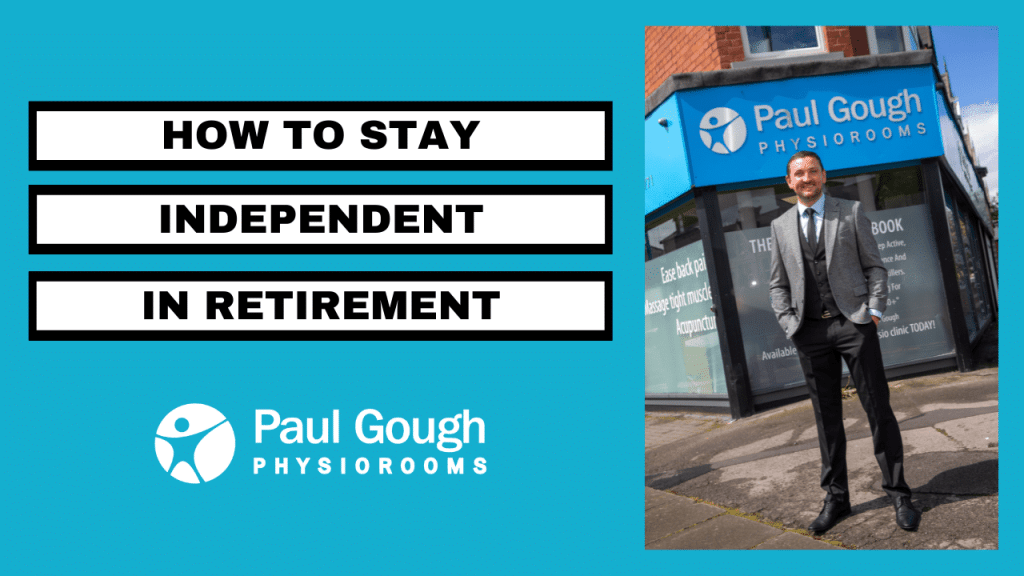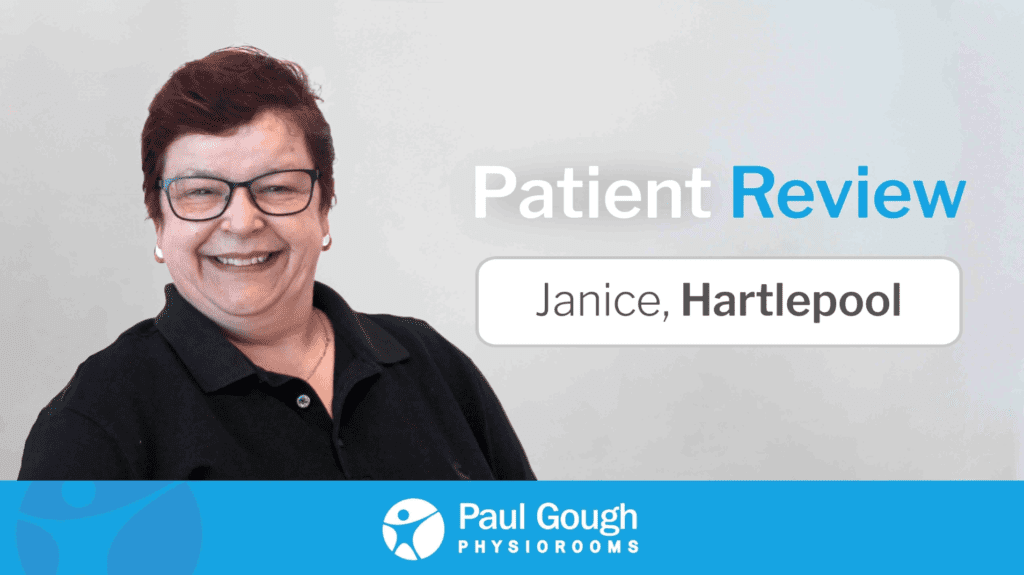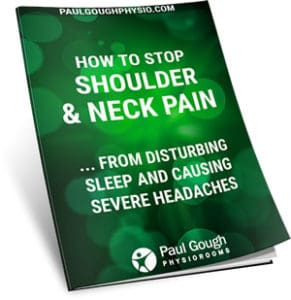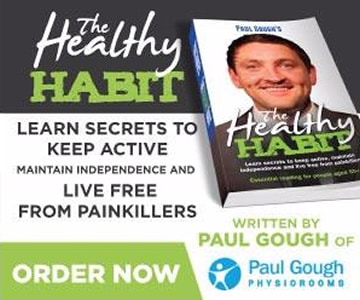There’s a phrase I like to use a LOT. And it’s worth remembering as age passes you by: You don’t get old and slow, you get slow and old.
Think about it.
The slower you get the older you feel. So if you want to stay independent in retirement, keep moving!
Stay Independent In Retirement – Daily Movement
We all want to stay independent in retirement, we all want to keep going and doing the things we love doing. Plenty of people struggle as they age and find it harder to do day to day things that they have always taken for granted.
After you turn 60, you actually have to “use it” more to stay ahead of the decline we so often associate with getting older.
Ask yourself – honestly ask! – how much you sit against how much you are active in a typical day? Keep a journal for a few days and track your activity. You might be surprised.
Physical activities get your body moving. Consider what you physically do each day such as gardening, walking the dog, housework, shopping and taking the stairs instead of the elevator. And, by the way, watching TV does not count!
Stay Independent In Retirement – Exercise To Get Healthier
Exercise on the other hand is specifically planned, structured and repetitive, such as yoga, weight training, tai chi, swimming, aerobics, or walking 7,000 – 10,000 steps a day. What exercise do you engage in every day?
If you truly want to stay independent in retirement and make the most of your golden years you have to make a conscious decision and plan to keep moving to reap the benefits. Keeping in mind the old familiar slogan of, “Just do it!” will help you…
Prevent or delay diseases such as arthritis, heart disease, diabetes, high blood pressure, osteoporosis, and dementia…
- Avoid becoming a fall risk
- Manage stress
- Improve your sleep
- Release endorphins, the happy hormones!
No matter how you analyze it, increasing your physical activity will improve your quality of life and stay independent in retirement.
Exercising is a fantastic way to stay active after retirement.
It not only gives your health a boost, but also allows you to live independently as you age. Now that you have more time, it’s simple to develop an exercise plan that works for your schedule. Experts recommend exercising for at least 150 minutes every week.
You want to focus on exercises that can improve your flexibility, strength, and balance. You don’t need extreme exercises to achieve these goals. Simple activities, such as walking, swimming, and cycling, should help you stay active.
There are also several straightforward exercises you can do while at home. They include knee lifts, abdominal contractions, pelvic tilts, wall push-ups, toe taps, heel raises and stretching. Single-leg balancing and shifting body weight should also help improve your balance.
Stay Independent In Retirement – Common Struggles For The 50+
Getting In And Out Of Your Car
How about something as simple as getting in and out of your car? Is that becoming a struggle?
Loss of function comes due to weakness. As the join becomes painful, people avoid using the joint in the manner they always have. So then, in turn, the muscles become weak. Then the joint suffers even more as the muscles aren’t strong enough to take the strain.
[rve src=”” ratio=”16by9″]
Try a mini-squat to help. Stand in front of your bed with your feet hip-width apart looking ahead. Then move towards the bed, as if you are sitting down. When you touch the bed, stand back again.
It’s a simple routine, but one which when repeated will help strengthen the muscles. Repeat the exercise ten times – and try doing that three times a day and you will soon start to see a big difference.
Now that’s one exercise routine you can start, it’s another way to stay independent in retirement.
And to take it on a stage further, have you considered taking a class? It’s another great way to improve your cognitive function. Learning and discovering new things in your retired life allows you to use your creative side for enhanced memory performance.
Keep in mind that taking any kind of class also offers opportunities to socialize with other people. You can learn something new, such as playing a musical instrument, dancing, playing bowls, painting, and gardening. An adult education course at a community college is also an option worth considering.
Other things you can learn include book-keeping, home health, and home repair. Taking a class keeps you engaged and excited during your retired life.
Fix Poor Posture And End Shoulder Pain
[rve src=”” ratio=”16by9″]
Poor posture can affect how you move and it’s important to correct it.
As people get older they tend to hunch over and that’s down to a weakness in their upper back muscles. Again, some very simple routines and exercises can help overcome those issues and they are an important thing to consider if you want to stay independent in retirement.
Stand up, and try and squeeze your shoulder blades back and down. It’s that simple! It will help keep your shoulders in a better position and, in turn, strengthen your back muscles to give a better posture.
Try it when you are standing waiting for the kettle to boil, doing them while the most mundane of things is happening can make a big difference!
The Fastest Way To Relieve Retirement Aches And Pains
If you feel like you need more than at-home exercises, and you’re worried about losing your independence, then our team are here to help.
We have worked with thousands of patients across the North East, many in their retirement, who came to us because they were battling aches and pains, and scared of being unable to take care of themselves in future.
We also work with lots of grandparents who are missing out on fun family activities because of lower back, knee or shoulder problems which leaves them unable to join in.
To make the most of your retirement, contact our team today to start your journey to a more active, mobile and pain-free life!
Enquire About Cost And Availability
Unsure whether Paul Gough Physio Rooms is right for you?
Read Our Latest Patient Success Story
Other Resources
Our founder, leading UK physiotherapist, and multi-time No.1 bestselling author Paul Gough has written a FREE downloadable report for anyone who is suffering with neck and shoulder pain and wants to know…
“How To Ease Annoying, Daily, Irritating Neck and Shoulder Pain Naturally – Before It Gets Any Worse…”
Download Your Free Neck And Shoulder Pain Report
Or check out our other fantastic blogs packed with helpful advice from our expert physiotherapy team.
Read Our Blog – How To Stay Fit In Your 50s, 60s, 70s, 80s and 90s
Read Our Blog – Why Do I Get Knee Pain When Walking? – And What To Do About It
Read Our Blog – 10 Simple Way To Prevent Falls At Home
Want videos on demand? Check Out Our YouTube Channel (Remember to hit subscribe so you don’t miss out on our new videos!)




